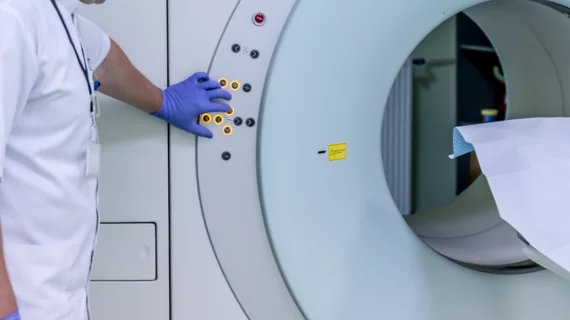Gas vesicles act as natural contrast agents, could result in 'erasable' MRIs
Scientists at the California Institute of Technology are taking steps toward erasable MRIs by using contrast agents natural to the human body—gas vesicles.
Mikhail Shapiro and colleagues at Caltech said that visualizing MRI contrast agents, though critical to radiology, is a “lingering problem in the field.” Even advanced, next-generation contrast agents like magnetic nanoparticles, which can be directed to specific tumor sites, are often still difficult to distinguish from the body’s natural tissues, which emit their own MRI signals.
“We’re developing MRI contrast agents that can be erased with ultrasound, allowing you to turn them off,” Shapiro said in a release from Caltech. “It’s the same principle behind blinking bicycle lights. Having the lights turn on and off makes them easier to see, only in our case we just blink off the contrast agent once.”
According to the release, Shapiro and his team had already identified gas vesicles—hollow protein shells that are used by microbes to regular access to light and nutrients—as possible ultrasound agents in the future. The vesicles are more easily distinguished from surrounding tissues than presently available contrast agents, Shapiro said, since their hollow chambers bounce back sound waves in different ways.
Gas vesicles are also easily identifiable because the air in their hollow chambers reacts uniquely to magnetic fields, translating to local darkening on MRIs where the vesicles are present.
The researchers tested their theory in mice, whose brains and livers were imaged. The team found that not only could gas vesicles be used successfully as natural contrast agents—they could also be turned off when hit by high-pressure ultrasound waves.
“We have previously shown that we can genetically engineer the gas vesicles in a variety of ways for use in ultrasound imaging,” Shapiro said, also noting they can be engineered separately, to target individual tumors or areas. “Now they have a whole new application in MRI.”
The team’s research can be found in the print edition of Nature Materials this month.

